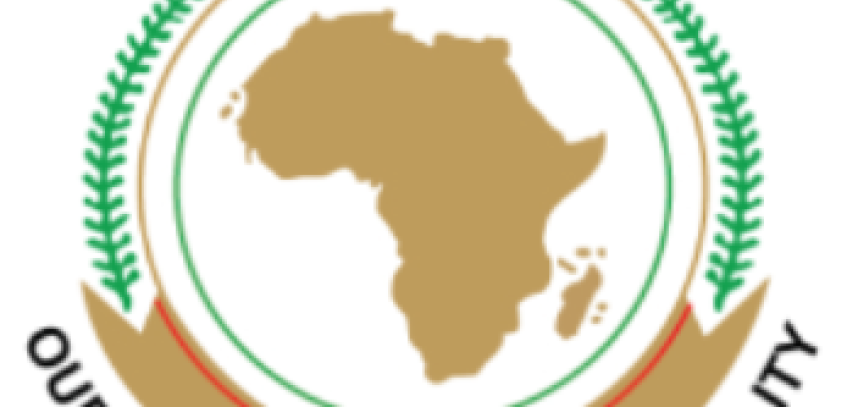We representatives of indigenous peoples, national human rights institutions, civil society from the East and Central African sub-regions as well as the Working Group on Indigenous Populations/Communities of the African Commission on Human and Peoples’ Rights meeting in Yaoundé, Cameroon, from 15 to 16 December 2015 to deliberate on ways and means of implementing the Outcome Document adopted by the General Assembly Resolution A/Res/692 at the World Conference on Indigenous Peoples of September 2014;
Expressing Appreciation to the Government of Cameroon and the Mbororo Social and Cultural Development Association (MBOSCUDA) for hosting and organizing the 1stConference on the Outcome Document, in collaboration with the Working Group on Indigenous Populations/Communities of the African Commission on Human and Peoples’ Rights;
Recalling the commitment of African states in the African Union 2063 Agenda to development that leaves no one behind;
Further recalling the decision of the African Union declaring 2016 African Year of Human Rights with a Focus on Women Rights;
Recalling the leadership and key role played by African states in the World Conference on Indigenous Peoples (WCIP) in September 2014 and notably its chairing by the Republic of Uganda and the statement made by the Republic of Congo on behalf of African states;
Affirming that indigenous peoples are entitled to all human rights and freedoms as guaranteed in international, regional and national instruments;
Cognizant of the fact that despite the commitments and guarantees made by states under international and regional instruments in particular the United Nations Declaration on the Rights of Indigenous Peoples (UNDRIP) 2007, the Outcome Document of the WCIP 2014, International Labor Organization (ILO) Convention 169, 1989 and the United Nations Guiding Principles on Business and Human Rights 2011, indigenous peoples continue to face multiple barriers, discrimination, exclusion, stigmatization, abuse, violations and erosion of their traditional livelihoods and cultures;
Noting that to date only twenty-two (22) countries have ratified the International Labor Organization (ILO) Convention 169 including only one African country, the Central African Republic;
Acknowledging the presence of the UN Special Rapporteur on the Rights of Indigenous Peoples during this conference who emphasized the indivisibility, interdependence and interrelatedness of all human rights as well as their linkages to sustainable development and climate change as substantiated in the Paris Agreement on Climate Change (2015) and 2030 Agenda for Sustainable Development (2015) that uphold the rights of indigenous peoples who are vulnerable to poverty, inequality and discrimination;
Recognizing the significant contribution of indigenous peoples to biodiversity, to the preservation of the ecosystem, national development and cultural diversity;
Recalling that the United Nations Framework Convention on Climate Change (UNFCCC) COP 21 Decision and the Paris Agreement acknowledge that climate change is a common concern of humankind and calls on Parties, when taking action on climate change, respect, promote, and consider their respective obligations on human rights, the right to health, the rights of indigenous peoples, local communities, migrants, children, persons with disabilities and people in vulnerable situations, the right to development and gender equality and equity, empowerment of women and intergenerational equity;
Further recalling that the COP 21 Decision “recognizes the need to strengthen the knowledge, technologies, practices and efforts of local communities and indigenous peoples related to addressing and responding to climate change...” and calls for the establishment of a platform for exchange of knowledge and best practices on mitigation and adaptation in a holistic and integrated manner.
Agreed to:
- Popularize and widely disseminate the Outcome Document and ensure its effective implementation at national and local levels;
- Advocate for the ratification of the ILO Convention 169 and domestication of the UNDRIP;
- Call for the development of integrated National Action Plans to implement the Outcome Document which will ensure that all national legislations, policies and administrative measures and development programs recognize, promote, fulfil and protect the rights and freedoms of indigenous peoples;
- Develop tools for inclusive dialogue and conflict management, and tools for the participatory monitoring of the progress achieved in the implementation of the WCIP Outcome Document and the UNDRIP;
- Jointly work with governments to develop indicators which can measure the well-being, respect and protection of the rights of indigenous peoples when the 2030 Development Agenda is being implemented, their participation in implementing, monitoring this Agenda and reporting on it will be ensured;
- Pay particular attention to the specific situation and needs of vulnerable groups within indigenous communities in particular women, children, youth and persons with disabilities;
- Ensure that all measures and actions are undertaken with the free, prior and informed consent of indigenous peoples; and
- Ensure that when climate change policies and actions are being developed and implemented at the national and local levels, indigenous peoples are effectively involved, their rights are respected, protected and fulfilled, and their traditional knowledge related to climate change mitigation, adaptation and disaster risk reduction, and management are recognized, supported and used.
Done on 16 December 2015 Yaoundé, Cameroon??










